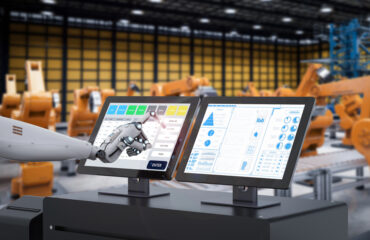
While artificial intelligence is a much-talked-about enabling technology in digital innovation strategies, some issues still need addressing.
Artificial intelligence is the technology story of the hour, and everyone wants to dive in. However, three recent studies suggest there’s more work to be done before AI starts delivering business value.
A report from McKinsey suggests many organizations require a solid infrastructure underneath it all — it takes digital to go more digital. Data is also a vital piece of the puzzle, a survey of 2,300 executives from MIT Technology Review and PureStorage adds.
At the same time, KPMG reports that investment in AI technologies is still relatively low, though many companies have plans for future spending on the technology.
See also: AI needs big data, and big data needs AI
All three surveys find a high degree of optimism about AI. The majority of executives in the MIT survey, 81%, believe AI will have a positive impact on their industry in the future, and 64% are likely to consider investing in AI solutions in the future. In addition, 83% agree AI will significantly enhance processes across industries — such as self-driving
safety and improved healthcare.
These survey results identify three critical components to AI transformation:
Data. However, the MIT survey also sees the need to better govern and grasp data. At least 84% are concerned about the speed at which data can be received, interpreted and analyzed for AI systems. Another 83% also agree that it is essential that data is analyzed for meaning and context.
Infrastructure. The underlying technology is also a concern surfaced in the surveys. The McKinsey survey finds those with a strong digital base are most likely to succeed with their AI efforts. “It appears that AI adopters can’t flourish without a solid base of core and advanced digital technologies. Companies that can assemble this bundle of capabilities are starting to pull away from the pack and will probably be AI’s ultimate winners.”
Culture. The KPMG survey finds many organizations have digital and AI efforts that are too narrowly focused, rather than elevating those to a more strategic approach. “They have not positioned themselves to transform their business and operating models so they can become and remain competitive with digital-first companies,” the report notes.
“Organizations that can power up AI efforts can radically improve operations, transform their business models and become long-term winners,” the KPMG report adds. “But piecemeal efforts that focus mainly on cutting the cost of legacy processes and reducing headcount – with, for example, siloed efforts to automate payroll, invoice processing, and customer service inquiries – will not move the needle in this new world.” The report observes that taking a strategic approach to AI and related technologies can boost business returns of 5X to 10X.
The MIT researchers agree that it is still early in the story of AI, and it’s not too late to prepare organizations and their infrastructures for the AI wave. “Organizations that work to address AI challenges and educate workers at all levels on both the promise and the reality of AI, as well as the value of data, will derive the maximum value from their data stores—value that will drive better business performance and an optimal customer experience.”





























